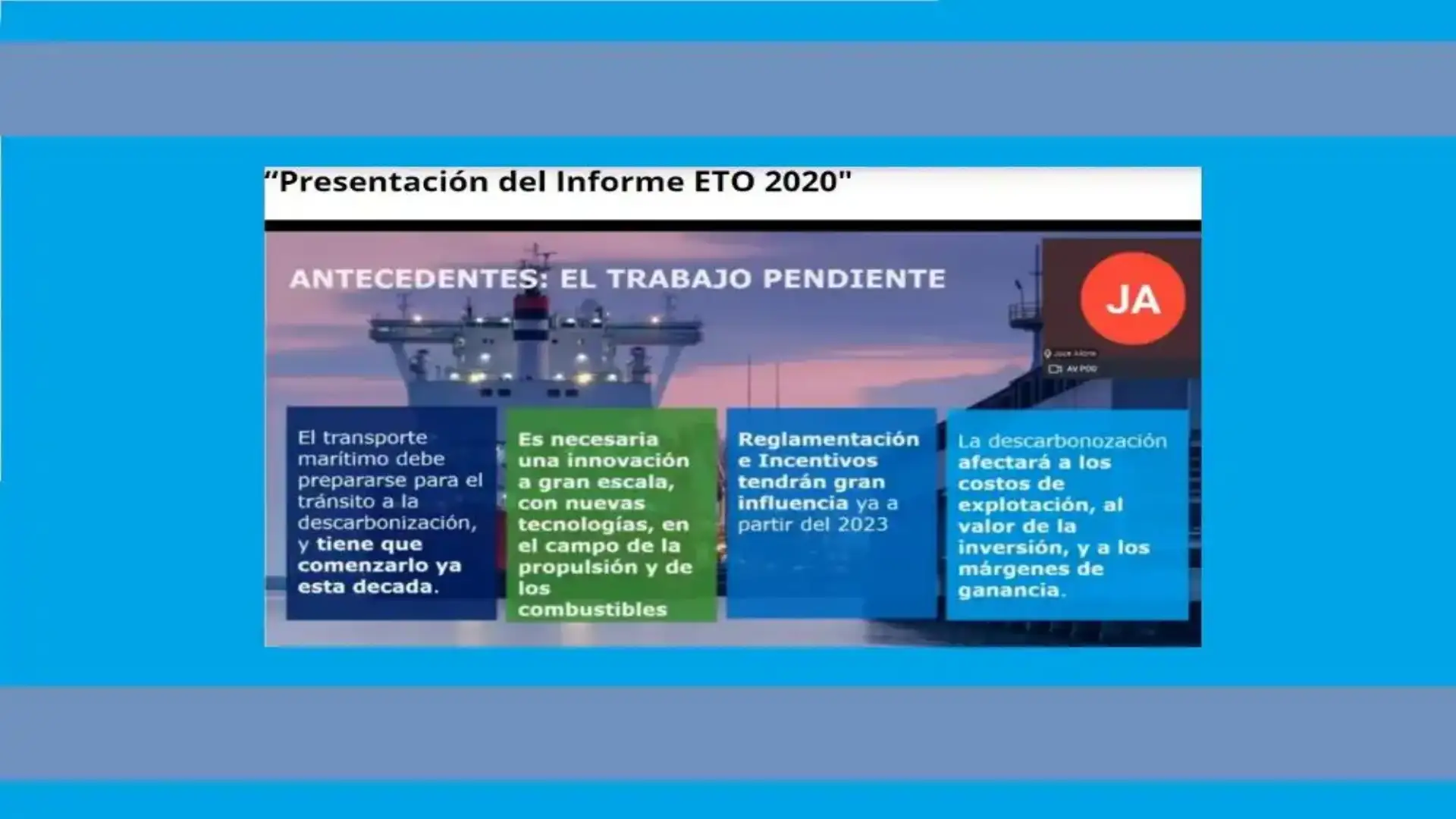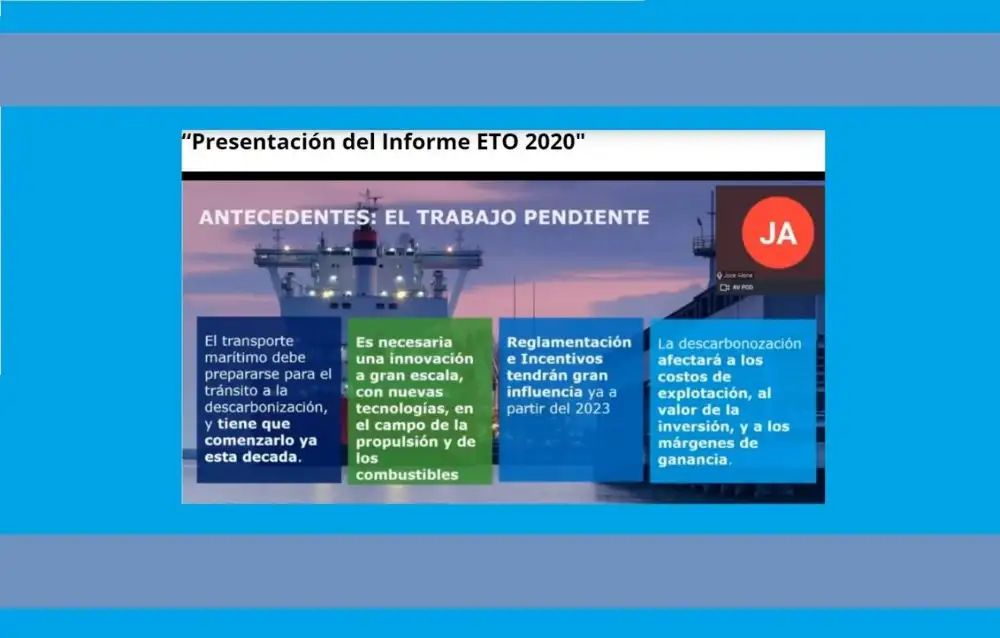
Ammonia and methanol can be dominant fuels for the maritime sector in 2050
Ammonia and methanol can be dominant fuels for the maritime sector in 2050

The Spanish Maritime Cluster celebrates its first day online, following the summer break, with the presentation of the ETO 2020 report - The energy transition and its impact on the maritime world, by DNV GL
Under the titlePresentation of the ETO 2020 report - The energy transition and its impact on the maritime world, the Spanish Maritime Cluster celebrates a new online day, by the hand of its partner DNV GL, which made known the details of the study, anticipating the future of the fuels for the maritime sector. This sense, José Allona, Business Development Manager of DNV GL, explained that while it is difficult to anticipate what will be the best option for the future, the "ammonia and neutral carbon methanol are the most promising fuels by 2050."
This is one of the conclusions drawn from the report submitted by Allona, which aims to provide an early response to what is going to happen in the maritime sector. The study analyses the future of the maritime sector in the context of technological, regulatory and market uncertainties on its path to decarbonisation and has an impact on the need for a "large-scale innovation, with new technologies, in the field of propulsion and fuels". In this step towards the energy transition, the expert has warned of how decarbonization will affect operating costs, investment value and profit margins. In short, "to the competitiveness of each business, because ships will have to be more efficient, with more expensive fuels and more space needed for storage."
Also the president of honor of the CME, Federico Esteve, emphasized the concept of energy transition, during its initial presentation, because "involves not only a change in the way energy is consumed, but also in the way it is produced, distributed and managed". Esteve, who contextualized the presentation of the report in his speech, highlighted the importance of this transition, referring to it as "a matter of vital importance," because the European Union considers the energy transition "as one of the strategic means of growth of the Community partners, one of the paradigms of future projects for the recovery of the European economy, after the collapse of the activity caused by the Covit-19 pandemic," said the president of honor.
To achieve the transition to decarbonisation in maritime transport, the choice of fuel is, according to the study, a key factor. In principle, the use of LNG from fossil sources is expected to grow until regulations are tightened by 2030 or 2040. For its part, carbon-neutral LNG and MGO, synthetic or from renewable energy, will emerge as usable fuels on existing vessels. By 2050, carbon-neutral ammonia and biomethanol will have a significant market share, the most promising in the long term. In the words of José Allona, these offer "the greatest balance between the cost of production and the cost on board the engines and the fuel system and are the most promising fuels with elecro- and bio- LNG and MGO as transition fuels."
According to this report, another key to reducing energy use and emissions is carbon capture and storage, for the decarbonization of natural gas, including the production of blue hydrogen. In this sense, José Allona has also highlighted the installation of dual LNG engines as a "robust" option for today, which allows "great flexibility in the future."
The report also analyses how "stakeholders" should work to enhance viable business plans with neutral fuels and, in response to this issue, Allona has shown some aspects to be taken into account, such as mechanisms to share risks and reduce the risk of "first to move"; schemes that facilitate long-term favourable financing of "green" ships; regulations that encourage new solutions, policies to support "green" suppliers, both from public administrations and from the private sector. "In the field of decarbonisation, "adequate risk management is critical to optimise the potential for operating benefits and the value of investment," It's over.
© 2024 Nautica Digital Europe - www.nauticadigital.eu











